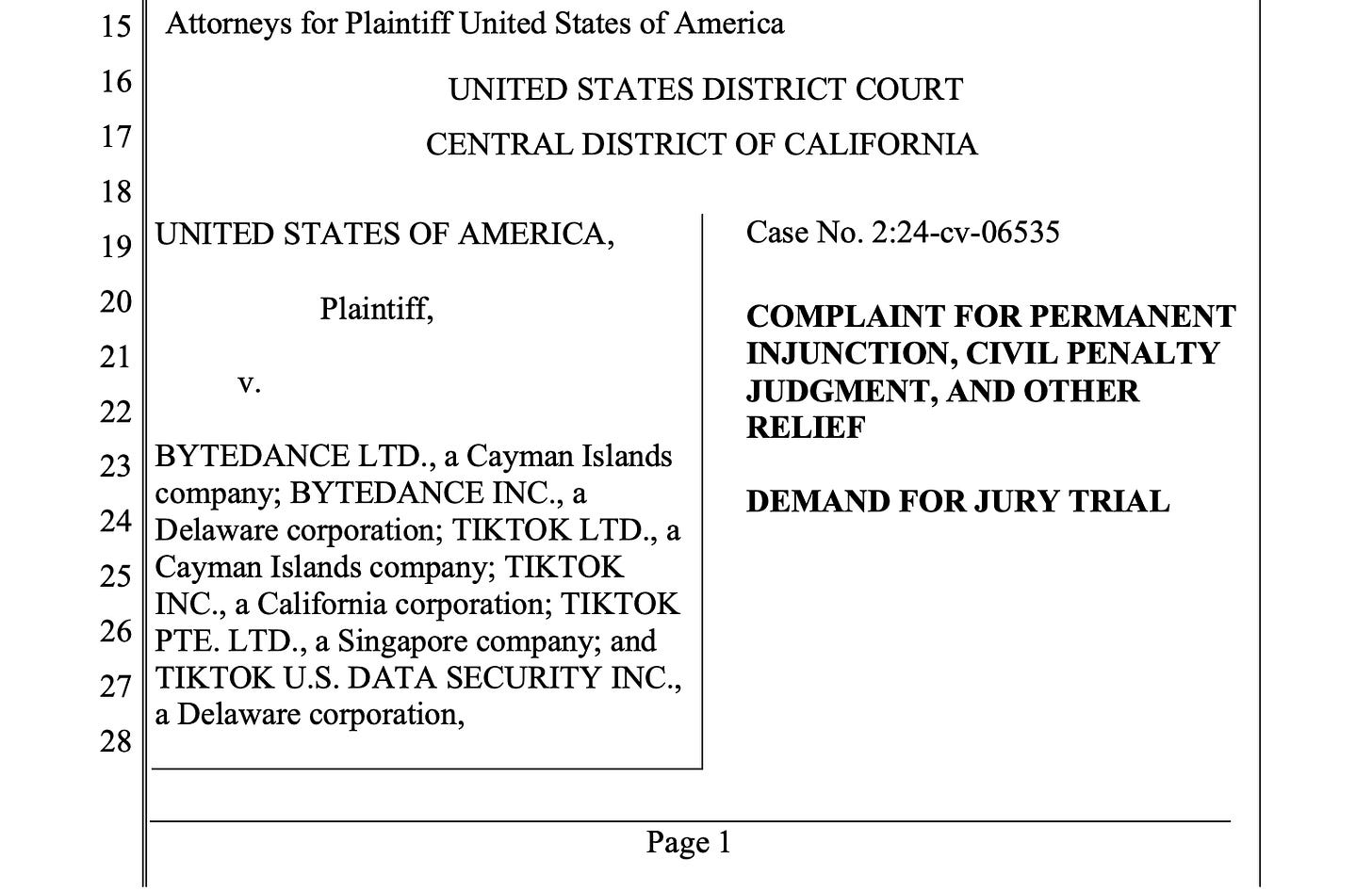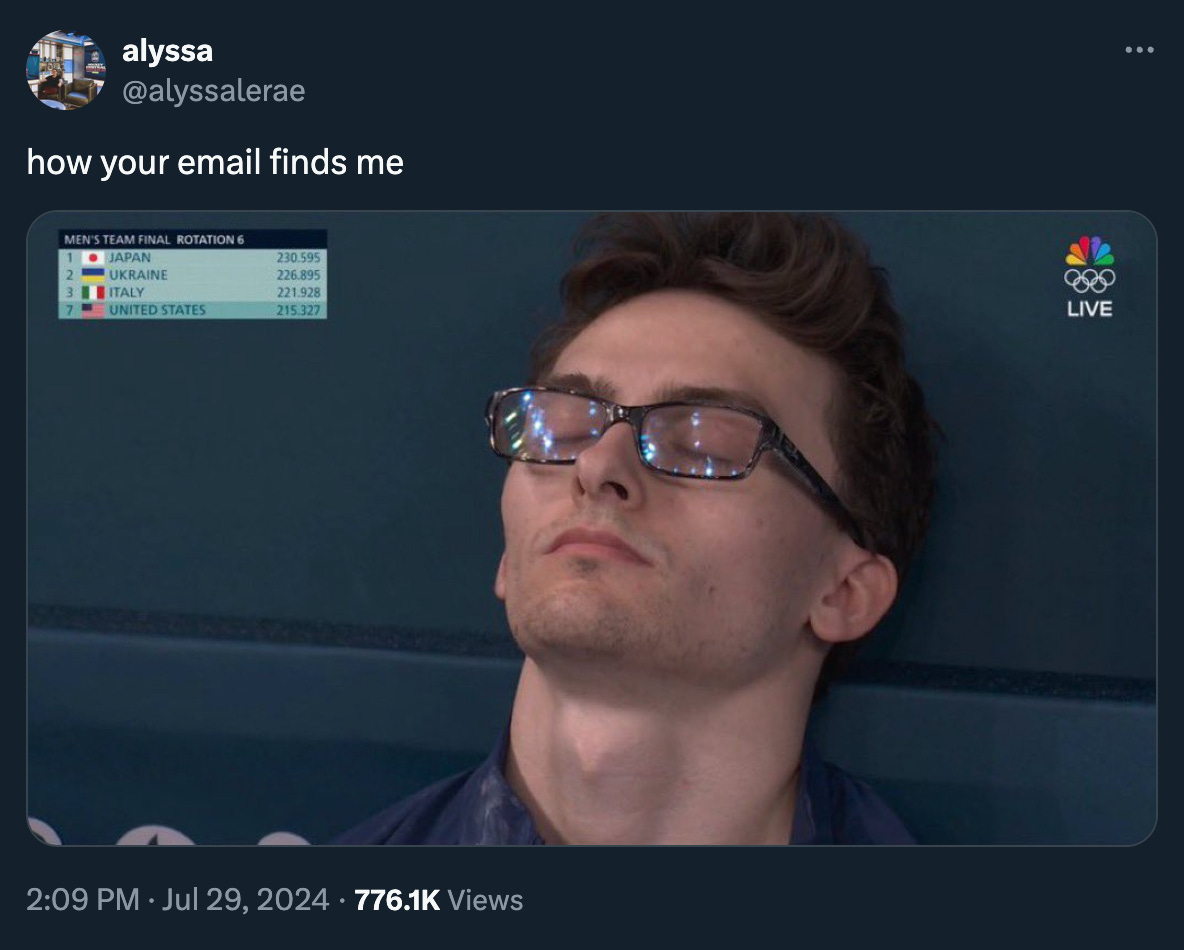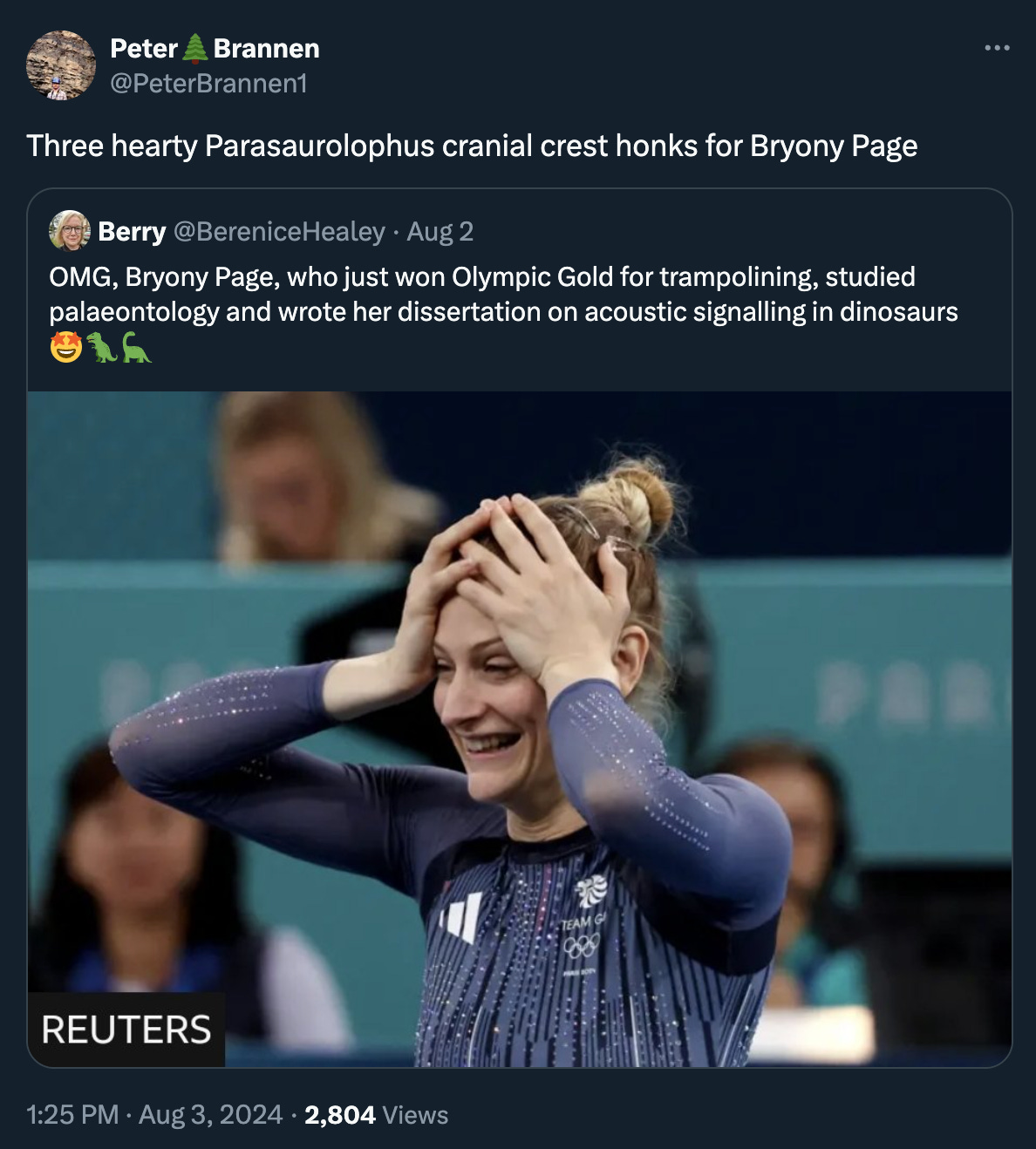Welcome back to the Ethical Reckoner. In this Weekly Reckoning, my inner Olympics cheerleader comes out as I use the new technology NBC is introducing as an excuse to gush about some of my favorite moments and how it’s a nice unifying moment for the Internet. This feels especially pertinent continuing the ongoing unrest in the UK (also fueled by the Internet). We also discuss the concrete consequences of online deepfakes and two developments in online privacy: China’s plans for an Internet ID, and the US’s attempt to sue TikTok (again).
This edition of the WR is brought to you by… the crossover we didn’t know we needed: Steve Kornacki explaining the rules of sport climbing (which starts in the Olympics today!)
The Reckonnaisance
Online disinformation fuels riots in the UK
Nutshell: After a knife attack, anti-immigrant and Islamophobic conspiracy theories spurred ongoing clashes across the UK.
More: Hours after a 17-year-old Wales-born man went on a stabbing rampage at a children’s dance class on Monday, conspiracy theories about the attacker’s identity—that he was an asylum seeker and/or Muslim—sparked riots targeting a mosque that injured more than 50 police officers. Russian state broadcasters and “clickbait accounts” helped amplify the conspiracies, and far-right agitation has continued into the weekend, with rioters setting multiple hotels housing refugees on fire.
Why you should care: This escalation of rightwing activity has caused a 5x increase in threats to Muslims and a tripling of hate crimes in the UK, on top of the injuries to protestors, counter-protestors, and police. PM Keir Starmer has condemned the “far-right thuggery,” but as of Sunday evening, it showed no signs of stopping. This isn’t just scary because of the violence: it’s scary because of the trigger, which leveraged our broken information environment. X in particular was a potent source of disinformation, including AI-generated images that weren’t taken down because even Elon Musk is spreading deepfakes now. There’s been a lot of attention devoted to AI’s potential impacts on elections, but we can’t overlook its influence on domestic politics more broadly.

Deepfake porn derails Florida commissioner’s political career
Nutshell: A Florida politician targeted by explicit deepfakes helped pass an anti-deepfake bill in Florida, but had to step down because of harassment.
More: Sabrina Javellana was a “rising star” in local Florida politics, but in 2021 she was targeted by AI-generated, explicit deepfakes (often called “revenge porn”). She had no legal recourse, but advocated for a state bill that criminalized non-consensual deepfakes in the state. It passed, but only caused more harassment. Ultimately, facing chronic anxiety and the knowledge that the harassment would continue, she decided not to run for re-election.
Why you should care: This case, documented in this excellent piece by the NY Times, shows risks of deepfakes to lower-profile public figures and even ordinary citizens—especially women. Javellana was driven out of politics because of these online abusers, and the law that she courageously testified to help pass proved unable to help her: she would have to file a lawsuit for each post and track down the posters, and amidst the ongoing harassment, that proved emotionally and financially too much. Also, if the pictures were posted outside Florida, the state law wouldn’t apply. Clearly, we need a national law. Senators have introduced the NO FAKES Act that would give people the right to sue if their voice or likeness is used without their consent. It has bipartisan support in the Senate and wide support in the industry, but it’s TBD whether it will get anywhere.
Children’s privacy becomes new salvo in US’s fight against TikTok
Nutshell: The US Department of Justice sued TikTok over allegations that the the app illegally collects children’s data and refuses to delete accounts when parents request.
More: In April, the US passed a bill that will force TikTok’s parent company, the China-based ByteDance, to divest itself of the app, over national security/disinformation concerns (often tinged with a touch of xenophobia). ByteDance is suing on First Amendment grounds, and now the US government is clapping back with this privacy lawsuit.
Why you should care: This echoes a lawsuit by 33 states against Meta alleging violations of the same kid’s privacy law (COPPA, one of the only federal data privacy bills the US has). It’s probably a legally stronger approach than the divest-or-ban bill, which has significant questions swirling around it about its constitutionality. But not only is this another avenue for the US to go after TikTok, it’s also yet another example of how the US government is increasingly willing to take on Big Tech companies (but not pass federal data privacy legislation).
China proposes national Internet ID… for “privacy”
Nutshell: The Chinese government is proposing a voluntary system for a single internet ID to use for identity verification.
More: China already requires people to register for online platforms with their real identities. This proposal is ostensibly to take the role of identity verification away from platforms to limit the amount of information users have to share, but it’s of course raising concerns that the government will have even more control over people’s online behavior.
Why you should care: China’s attitude towards online privacy is really interesting. It has strong laws that protect consumer privacy from abuse by companies, but government access is much less constrained. This system would limit the amount of personal data that companies can collect, but would cut out the middleman for the government when connecting people’s online identities to their physical ones. For one, it’ll make censors’ jobs easier because they won’t have to track people across platforms, but will have centralized access to a user’s information.
Extra Reckoning
Is it just me, or is this the Olympics of the nerds? “Pommel Horse Guy” (aka Stephen Nedoroscik) charmed the Internet with his sub-10-second Rubik’s cube solves and his Clark Kent/Superman-like transformation from “bespectacled napper” to “pommel horse master” as he clinched the first medal for the US men’s gymnastics team since 2008. He has a degree in electrical engineering, the glasses to match, and has been nerding out with John Green on Twitter.
There’s also Bryony Page, who became the UK’s first individual female Olympic champion gymnast when she won gold in trampoline. She got a first-class degree in paleontology and wrote her dissertation on acoustic signaling in dinosaurs; she brings a dinosaur lunchbox to competitions and spouts dinosaur fun facts to reporters (although her poker face could use some work).
And Noah Lyles, the fastest man in the world, flashes Yu-Gi-Oh! cards at starting lines. These athletes are breaking down the jock/nerd dichotomy, and I love seeing athletes being acknowledged for nerdy accomplishments outside of competition. But there’s another group of nerds who have been making the Olympics great: NBC’s programmers. Peacock is crushing it with the streaming, with 5 million daily viewers tuning in, a significant chunk of the 34 million average daily viewers for NBC/Peacock’s Olympics coverage. Viewership is up 79% from the Tokyo 2020(/2021) games, which must be delighting NBC to no end, because they spent $12 billion on the rights to air the Olympics in the US from 2014 to 2032. For COVID-affected Tokyo, ratings were down 27% from Rio 2016, and Beijing 2022 was down 42% from PyeongChang 2018.
To be honest, I barely remember engaging with either of those Olympics (except, of course, for gymnastics and sport climbing), but I’ve been riveted by the coverage this year. This is in no small part because of Peacock, which I think is a great example of cable finally embracing the creative possibilities of streaming. Why should streaming just be “your television, but on a mobile device”? Why not have multiple feeds? Why not have AI-generated summary videos curated to your interests? (This made me deeply skeptical, especially since it uses the AI-generated voice of commentator Al Michaels, but it’s actually quite good.) And the memes, of course, have been fabulous, in no small part because engagement is up (plus Martha Stewart and Snoop Dogg have taken their buddy comedy to Paris). The AI-generated curated summary is something that’s particularly interesting. You fill out a short survey of what kind of sports you’re interested in, what kinds of storylines you like, and then it selects highlight clips and assembles them into a slick video as AI Al explains them. Meta is offering celebrities millions to license their voices for various projects, and there’s a real argument to be made that this is could be one of the primary use cases for generative AI/deepfakes (unlike Javellana, these are made consensually). It’ll be interesting to see how sports coverage—and streaming more broadly—evolves based on this.
The post-COVID Olympics are also taking advantage of influencer culture, both from athletes and from other influencers that groups are flying in. I don’t think anyone can quantify the TikTok and Twitter exposure of the games, which anecdotally is way higher than it has been before. People are actually talking about these Olympics—even offline!—and in a world where everything feels more fragmented and divided, it’s nice to have something to unify around. Just thank the nerds.
I Reckon…
that “computing machines” used to be way vibier.
Thumbnail image generated by DALL-E 3 via ChatGPT with the prompt “Generate an abstract Impressionist painting in shades of blue representing the concept of Olympic unity.”








